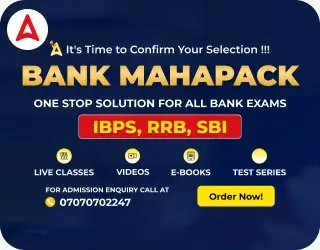The Delhi Subordinate Service Selection Board (DSSSB) is going to conduct the DSSSB PGT computer-based test (CBT) from 26th to 31st March 2026 to select candidates for teacher positions in Delhi. To succeed in the exam, candidates should familiarize themselves with the DSSSB PGT syllabus 2026 and exam pattern, enabling them to create a focused and effective study plan. Knowing the syllabus is key to good preparation, which in turn leads to achieving high marks. Review the syllabus below to start preparing effectively.
DSSSB Postgraduate Teacher Syllabus 2026 and Exam Pattern
The candidates who are going to take this exam should be aware of the latest syllabus of this exam and start preparing accordingly. The latest DSSSB PGT Syllabus 2026 is provided by the official exam conducting authority, including a list of subject-wise topics. Candidates should understand every question very well so that they can know which subject will get more weightage and which one needs more time. For each incorrect answer, 0.25 marks will be deducted in this exam.
| DSSSB PGT Syllabus 2026 | |
| Organization | Delhi Subordinate Service Selection Board (DSSSB) |
| Exam Name | DSSSB PGT 2025 |
| Post Name | Post Graduate Teacher (PGT) |
| Vacancies | 432 |
| DSSSB PGT Exam Date 2026 | 26th to 31st March 2026 |
| Types of Questions | MCQ |
| Negative Marking | 0.25 |
| Duration | 03 hours |
| Official Website | https://www.dsssb.delhi.gov.in |
DSSSB PGT Exam Pattern 2026
Before starting the preparation, the candidate should understand and know about the pattern of the exam, like exam time, marks, number of questions, etc. The questions asked in the DSSSB PGT Exam will be objective in nature. The DSSSB PGT Exam paper is divided into 2 sections. In which Section I is of 100 marks and Section II is of 200 marks. For every correct answer, candidates will get 1 mark each. There will be a negative marking of 0.25 marks for every wrong answer. Candidates are given 3 hours to complete the question paper.
| Sections | Subjects | No. of Questions | Marks | Time Duration |
| General Awareness | 20 | 20 | 03 hours | |
| Section I | General Intelligence and Reasoning Ability | 20 | 20 | |
| Arithmetical and Numerical Ability | 20 | 20 | ||
| English Language and Comprehension | 20 | 20 | ||
| Hindi Language and Comprehension | 20 | 20 | ||
| Section II | Subject Concerned (MCQ on post-graduation qualification and teaching methodology required for the post) | 200 | 200 | |
| Total | 300 | 300 | ||
DSSSB PGT Syllabus Section I 2026
Those who want to appear for this examination need to properly understand its syllabus to do good preparation for the exam. This exam has a negative marking of 0.25, so candidates should study carefully and know its syllabus and questions well. The DSSSB PGT syllabus section I consists of general awareness, general intelligence and reasoning ability, arithmetical and numerical ability, English language and comprehension, and Hindi language and comprehension, which have been discussed below.
| Subjects | Syllabus |
| General Awareness |
|
| General Intelligence and Reasoning Ability |
|
| Arithmetical and Numerical Ability |
|
| English Language and Comprehension |
|
| Hindi Language and Comprehension |
|
DSSSB PGT Syllabus Section II 2026
The Delhi Subordinate Services Selection Board (DSSSB) is examining the post of Post Graduate Teacher (PGT) in various government schools in Delhi. In this examination, the concerned subject is chosen by the candidates according to the major subject they have in their postgraduate degree. Candidates who are applying for the DSSSB PGT post have to prepare one subject as per their interest, and this paper carries 200 marks. Subjects like Sanskrit, Hindi, History, Economics, Chemistry, Biology, and Mathematics can be chosen. The syllabus for all the concerned subjects is given below.
| Subjects | Syllabus |
| Geography |
|
| Physics |
|
| Chemistry |
|
| Biology |
|
| Mathematics |
|
| Economics |
|
| Commerce |
|
| History | Indian History
World History
|
| Sanskrit |
|
DSSSB PGT Subject-Specific Syllabus 2026
In order to build up their preparation, candidates should prepare with the help of the syllabus. After completing the DSSSB PGT syllabus, candidates can solve mock tests and improve weak areas. Below is the DSSSB PGT Syllabus 2026 PDF Link.
- PGT Political Science Syllabus 2026
- PGT Physical Education Syllabus 2026
- PGT Maths Syllabus 2026
- PGT Home Science Syllabus 2026
- PGT History Syllabus 2026
- PGT Hindi Syllabus 2026
- PGT English Male Syllabus 2026
- PGT Economics Syllabus 2026
- PGT English Female Syllabus 2026
- PGT Chemistry Syllabus 2026
- PGT Biology Syllabus 2026

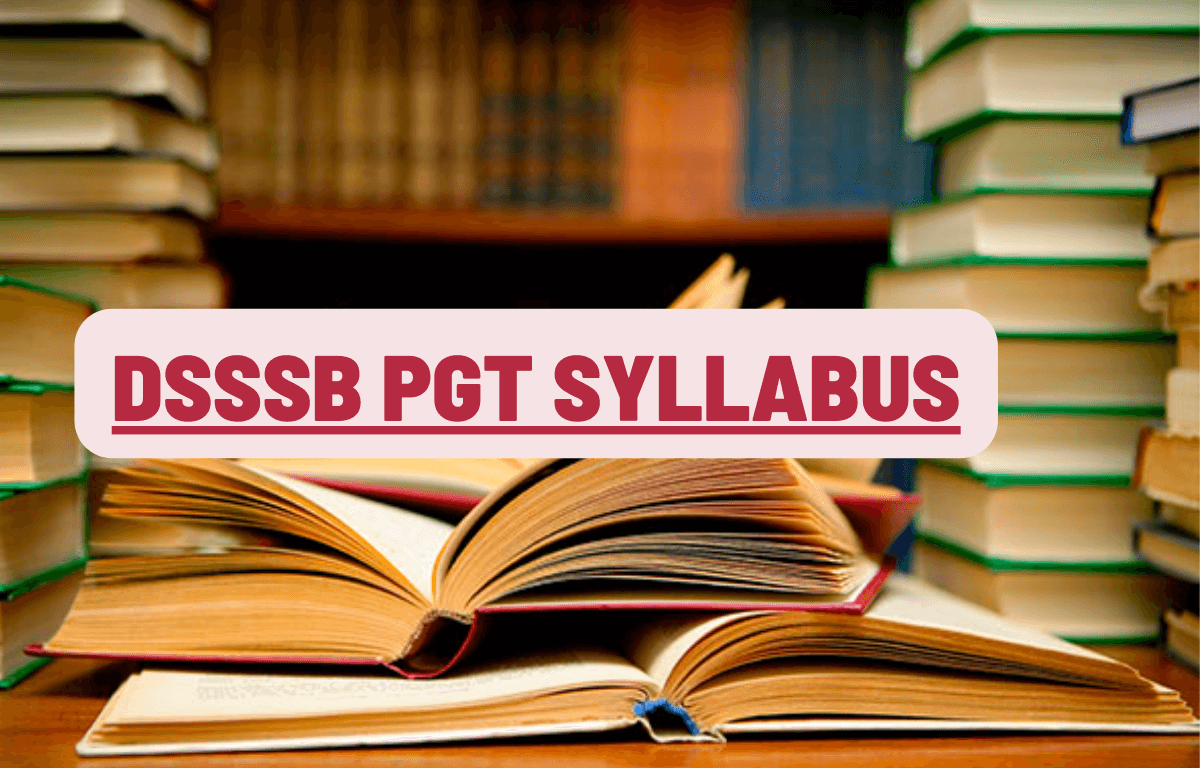

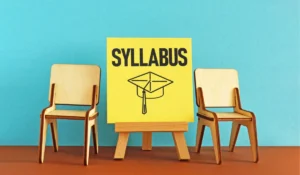 CG Mandi Upnirikshak Syllabus 2026 and E...
CG Mandi Upnirikshak Syllabus 2026 and E...
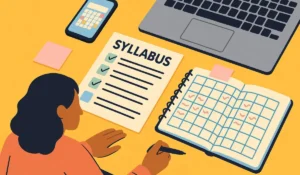 Rajasthan RSSB Lab Assistant Syllabus 20...
Rajasthan RSSB Lab Assistant Syllabus 20...
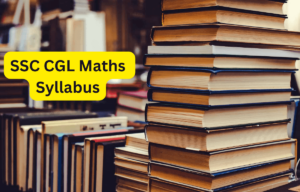 SSC CGL Maths Syllabus 2026, Tier 1 &...
SSC CGL Maths Syllabus 2026, Tier 1 &...

